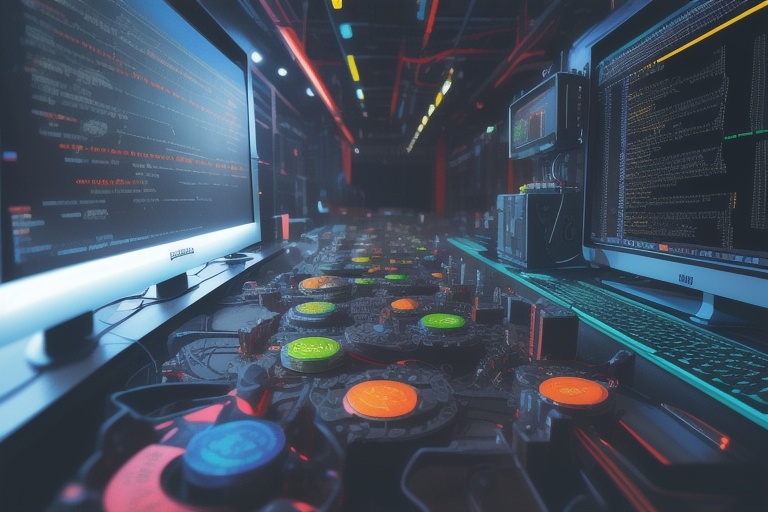Artificial Intelligence (AI) and Machine Learning (ML) are terms that have been at the center of a technology revolution, garnering widespread attention from enthusiasts and professionals around the world. As we stand on the cusp of what could be a watershed moment in digital history, it is crucial to understand the backdrop and context of these technological marvels. AI fundamentally is the science of creating intelligent machines, particularly intelligent computer programs that can mimic, replicate, or even surpass human cognitive functions.
Artificial Intelligence (AI) and Machine Learning (ML) are terms that have been at the center of a technology revolution, garnering widespread attention from enthusiasts and professionals around the world. As we stand on the cusp of what could be a watershed moment in digital history, it is crucial to understand the backdrop and context of these technological marvels. AI fundamentally is the science of creating intelligent machines, particularly intelligent computer programs that can mimic, replicate, or even surpass human cognitive functions.
Understanding AI: Categories and Current State
AI systems are broadly classified into three categories based on their capabilities. Narrow AI, or Weak AI, is proficient in conducting specific tasks intelligently. Think of voice-activated devices or self-driving technology - these are illustrious examples of Narrow AI at work. General AI encompasses machines with the ability to apply intelligence across a wider range of contexts, similar to human intellectual capabilities. Super AI, a concept that still remains hypothetical, represents a future where machines could possess cognitive abilities surpassing even the brightest human minds.
The realm of AI that we encounter today primarily falls within the Narrow AI category, excelling in particular areas but without human-like versatility. The progress of AI has not been an overnight phenomenon but rather an evolution across decades. As early as the 1980s, AI found its footing in industry through production-rule systems and expert systems. The landscape began to shift with machine learning methodologies, such as genetic algorithms and neural networks, addressing more complex computing challenges and enhancing industrial control systems.
Innovative methods, including probabilistic and Bayesian techniques, furthered this technological crescendo - leading to advancements we witness today in semantic analysis and big data navigation. AI's reach has expanded into multifarious domains such as healthcare where it aids in diagnosing diseases, finance where it helps in fraud detection, and transportation where it improves safety and efficiency.
Reflecting on AI's Journey
A journey into the past reveals AI's transformative steps. Merely a decade ago, the idea of machines thinking like humans was met with a mix of skepticism and wonder. Still, AI made headway, mastering games like chess and Go, and perfecting language translation - feats that captured the public's imagination. The term "artificial intelligence" has its genesis in the 1950s, but the idea of automated reasoning extends back even further. Alan Turing, a pioneer of computer science, postulated in 1947 that machines would eventually be acknowledged for their thinking capabilities. His vision has been largely realized, as AI now transforms the once unimaginable into everyday reality.
With eyes set firmly on the future, we can expect AI to seep further into the fabric of our existence, transforming global industries and necessitating a paradigm shift in job roles and skill requirements. Consider healthcare in populous nations like India; AI offers a beacon of hope to elevate the quality and accessibility of healthcare services through quicker, more precise diagnostics, tailor-made treatment plans, and breakthroughs in disease forecasting.
AI's Impact on Various Sectors
In banking, AI-driven chatbots and virtual assistants are reimagining customer service, while its prowess in data analysis promotes astute financial decision-making and risk management. The transformative influence of AI doesn't stop there - it extends to the spheres of education, where it personalizes learning, manufacturing, where it optimizes production, advertising, where it targets marketing, and military operations, where it safeguards cyber security.
Naturally, amidst this techno-optimism, there are valid reservations regarding the explainability of AI decisions and risks to privacy. Nonetheless, the prospective benefits of enhanced efficiency, accuracy, and decision-making are compelling. With judicious deployment and ethical considerations, AI stands poised to bring about profound societal benefits.
Embracing the AI Revolution
With the pace of innovation showing no signs of abatement, it is imperative to stay informed about the latest developments in the field. Knowledge of AI and ML can unlock a myriad of opportunities for progress across sectors. As we continue to explore these areas on our blog, we invite you to join us on this fascinating journey into the heart of tomorrow's technology - a journey that promises not only to redefine industries but also to foster the development of strong AI that is inclusive, responsible, and ultimately human-centric. The brilliance of AI shines not just in its computational splendor, but in its capacity to augment our lives, to free us for creative endeavors, and to deepen our understanding of the world we inhabit. The potential is boundless, and the future, as always, is ripe with possibility for those poised to learn, adapt, and innovate.
Information for this article was gathered from the following source.




